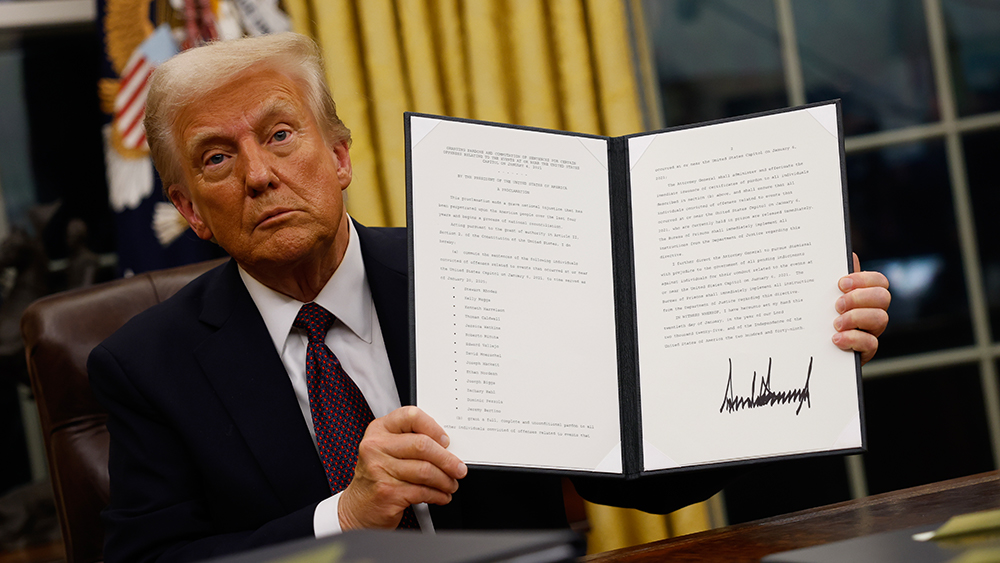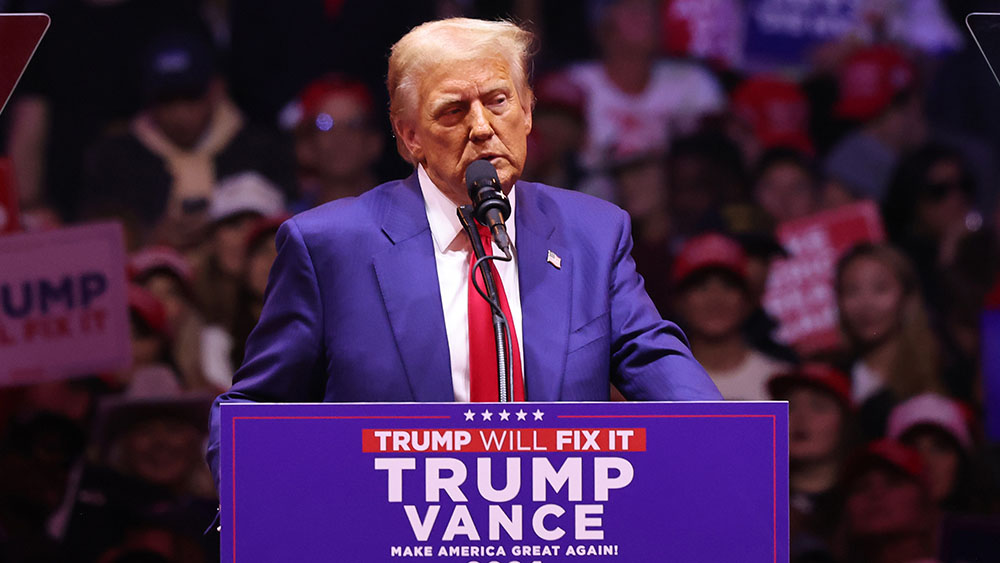 Parler
Parler Gab
Gab
- Doug Burgum, Trump’s nominee for Secretary of the Interior, warned the Senate that the U.S. risks losing the global AI race to China unless it prioritizes reliable, baseload electricity generation, primarily from fossil fuels, to meet the energy demands of AI and data centers.
- Burgum argued that while renewable energy sources like wind and solar are gaining traction, their intermittent nature makes them insufficient for the demands of a digital economy. He advocated for a renewed focus on coal and natural gas to ensure consistent power supply.
- Renewable energy developers counter that battery storage can make intermittent sources reliable, but Burgum dismissed this, warning that without traditional fossil fuels, the U.S. could face power outages and higher electricity prices.
- Despite his emphasis on fossil fuels, Burgum pledged to pursue an "all-of-the-above" energy strategy, acknowledging the need for various energy sources. He highlighted carbon capture technology as a means to produce cleaner electricity from coal.
- Burgum’s nomination reflects a broader shift in U.S. energy policy under the Trump administration, which favors fossil fuels. His role, if confirmed, will be crucial in shaping the nation’s energy future, balancing reliability, affordability and environmental sustainability amid global competition in technology and AI.
The challenge of intermittent renewables
Renewable energy developers have countered that pairing wind and solar projects with battery storage can effectively transform intermittent sources into reliable baseload supply. However, Burgum dismissed this approach as inadequate, warning that without traditional fossil fuel-based power, the U.S. could face brownouts, blackouts and higher electricity prices. “If the sun’s not shining and the wind’s not blowing, and we don’t have baseload, then we’ve got brownouts and blackouts, we have higher electric prices for every American,” he said. Burgum’s stance reflects a broader shift in energy policy under the incoming Trump administration, which has signaled a strong preference for fossil fuels over renewables. Trump has been a vocal critic of wind energy, calling windmills “an economic and environmental disaster” and vowing to block their expansion during his presidency. Burgum, however, sought to strike a more balanced tone during the hearing, pledging to pursue an “all-of-the-above” energy strategy. “I don’t want the word ‘baseload’ to be code for ‘no renewables,’” said Senator Angus King, an independent from Maine, pressing Burgum on his position. Burgum responded: “America needs all forms of electricity, and we need more of it in the very near term. This isn’t about one versus the other.”A return to fossil fuels
Burgum’s nomination comes at a pivotal moment for U.S. energy policy. The Biden administration had prioritized renewable energy and climate initiatives, including mandates for coal plants to adopt carbon capture technology or shut down. Burgum, however, touted carbon capture as a way to produce “clean electricity” from coal, despite industry concerns about its high costs. If confirmed, Burgum would play a central role in executing Trump’s energy agenda, which includes expanding oil drilling and mining on federal lands. The Interior Department oversees a fifth of U.S. land and regulates energy development in the nation’s coastal waters, making it a key player in shaping the country’s energy future. Burgum’s emphasis on fossil fuels has drawn criticism from environmental advocates and some lawmakers, who argue that it undermines efforts to combat climate change. Democratic senators, pointing to North Dakota’s success with wind energy—which accounts for a third of the state’s electricity generation—urged Burgum to advocate for renewables within the Trump administration.Energy and national security
The debate over baseload power is not new. For decades, the U.S. has relied on coal and natural gas to provide the steady electricity supply needed to power homes, businesses and industries. However, the rise of renewable energy and growing concerns about climate change have challenged this model, prompting a shift toward cleaner but less predictable energy sources. Burgum’s warnings about the AI arms race echo historical concerns about energy and national security. During the Cold War, the U.S. invested heavily in nuclear power and other energy technologies to maintain its edge over the Soviet Union. Today, as China rapidly advances in AI and other high-tech industries, the stakes are similarly high. Burgum’s argument is that without reliable energy, the U.S. cannot compete in the 21st-century economy.A balancing act
As the U.S. prepares for a new administration, the tension between energy reliability, affordability and environmental sustainability will only intensify. Burgum’s nomination highlights the challenges of balancing these competing priorities while ensuring the nation remains a global leader in technology and innovation. “This isn’t about one versus the other,” Burgum said of the energy debate. “It’s about how to increase the amount of electricity in the U.S. and do it in a way that ensures affordability and reliability.” Whether the U.S. can achieve this balance—and secure its position in the AI race—remains to be seen. But one thing is clear: the decisions made in the coming years will have far-reaching implications for the nation’s energy future and its place in the world. Sources include: RigZone.com Recharge.news Yahoo.comTrump’s rapid actions ignite Washington: The swamp drainage accelerates
By Willow Tohi // Share
Trump signs executive orders reversing transgender protections and DEI programs
By Laura Harris // Share
Trump takes aim at MSNBC and CNN, predicts liberal media’s downfall
By Cassie B. // Share
A new dawn at the border: Trump administration shuts down CBP One, begins mass deportations
By Willow Tohi // Share
Trump warns: China’s DeepSeek AI breakthrough a wake-up call for U.S. tech
By Cassie B. // Share
Governments continue to obscure COVID-19 vaccine data amid rising concerns over excess deaths
By patricklewis // Share
Tech giant Microsoft backs EXTINCTION with its support of carbon capture programs
By ramontomeydw // Share
Germany to resume arms exports to Israel despite repeated ceasefire violations
By isabelle // Share










